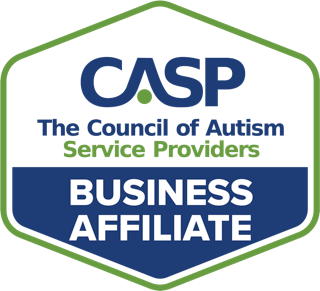Starting a new Applied Behavioral Analysis (ABA) practice can be an exciting endeavor.
However, it can be also challenging if you don’t know where to start or how to compete against other practices that are already up and running.
Most practitioners undoubtedly start out with the idea to help others, but the reality is that many business owners fail for reasons including their inability to develop business know-how, a strong financial model, and an adequate sustainability plan.
To succeed in this emerging industry, you must learn it to understand the business side of your practice just as well as the clinical side.
The different facets can be overwhelming if you’re not already familiar, which is why we thought this would be a helpful topic to discuss.
In our recent webinar Entrepreneurship in ABA: Top 10 Things I Wish I Knew Before Starting an ABA Practice, Ola Pinney shares lessons from her own experiences and offers insight into the top things every ABA provider should consider to protect the sustainability and scalability of their business.
Our organization has spent over a decade training businesses providing services across the globe, and I can’t wait to finally share what we’ve learned with you!
Molly Ola Pinney Tweet
Here are a few tips to take away:
1. Have Focus In Your Business
You should have a really compelling reason for switching gears in your practice. A decision-making matrix can help you look at the different things you should focus on like time, costs and staff buy-in. You should also be mindful of your messaging, marketing efforts and strategic efforts to support your bottom line.
2. Learn More About The Numbers In Your Business
Even if you have an accountant, it is important that you understand cash flow and can plan for the future. Some business owners tend to make a budget at the beginning of the year and then randomly check it throughout the year. A regular budget analysis and plan for cash flow will help you note how money is coming in and going out so that you scale and spend appropriately. Investments should also have a return.
3. Develop A Crystal Clear Mission
The way that your business is going to attract people is by helping others understand and support your mission. Ask yourself if you know where you’re headed and how you’ll get there. According to Ola Pinney, “The how doesn’t matter nearly as much as the when, where and why.” When you’ve figured out your mission, you’ll want to figure out your why. If you don’t yet have a mission, sit down with your team and write one down. Then figure out your verticals and your people.
4. Make Good Staffing Choices
Having a strong vision or mission will attract people who are there because they want to be. You need specific expectations, guidelines and go-to policies. You should leave no stone unturned when hiring, which may include creating an employee handbook (if you don’t already have one) and running guidelines and policies by your lawyer. Think about the culture of your organization and what’s important to you and the people who work with you. Weekly reports and regular meetings are amazing tools you can use once you have the right team. You should also have a clear disciplinary process in place and never forget to hire slow and fire fast.
5. Make Sure You Have A Strong Digital Presence
Does your company show up on multiple platforms? Are you using social media platforms and ads appropriately? Remember that your image should match your voice, your people should see themselves in your practice’s page and your visual identity should be clear, simple and inspiring. Remember that you are connected to your company, so your personal image matters too.
6. Determine Whether Your Company Is Scalable
In order to make your business scalable, you need strong processes. Documenting processes allow you to plug in to them later and keep everything in one place so everyone knows where to go. You should also think about your team and who you need on your team to move forward.
7. Time Management Is Key
Even if you don’t think you have enough hours in the day, you do. There are also enough hours in the day to take care of your body, mind and spirit. “A good way to manage your time is to block and tackle,” says Ola Pinney. Think about repetitive tasks and ways to leverage your time. You should also delegate more tasks to others who can perform them.
8. Change Your Mindset
In order to get a handle on the things you’d like to do, you need to change your time. Try on the idea that you are the strong leader of your business and then figure out if you’re the roadblock to your own success.
9. Be Consistent With Your Marketing
“One of the best ways to get the word out about what you do, is by talking about what you do,” says Ola Pinney. Effective marketing requires a commitment to growth and a voice that people trust and want to hear more from. Listening to and implementing best practices also help to make your marketing efforts more sustainable.
10. Go To The Source
There is a lot that you can learn from others, including competitors/colleagues within the ABA field. Make it a point to network and have a casual conversation. These are just a few tips of the many things you should keep in mind as an ABA provider. Another tip would be to have a practice management platform in place to streamline your processes and promote scalability while still ensuring client success.
Our one-stop-shop platform offers Billing services, Clinical tools, and Practice Management tools along with RBT Training, VB-MAPP licenses, and more than 1500 resources/materials as curriculum pieces.
Schedule a demo today at your convenience!
This article is based on our recent webinar, Entrepreneurship in ABA: Top 10 Things I Wish I Knew Before Starting an ABA Practice, presented by Molly Ola Pinney, Founder/CEO of Global Autism Project.










